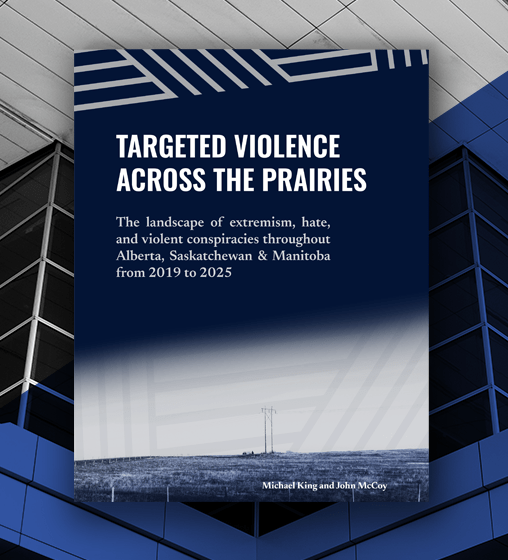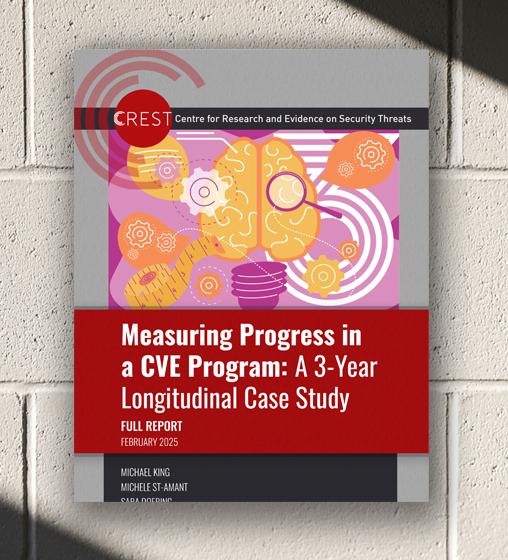Our Executive Director, John McCoy, co-authored this opinion piece on the proactive approaches needed to face an increasingly polarized era in the aftermath of the Edmonton City Hall shooting.
Original Article
Published by the Edmonton Journal on January 31, 2024.
On Jan. 23, Edmontonians, Albertans and Canadians were confronted with the consequences of what an increasingly polarized society can lead to in extreme circumstances.
When an individual dressed as a security guard entered Edmonton’s City Hall armed with a rifle and homemade Molotov cocktails, we were again reminded of how fragile our security is in the age of rising extremism. The accused discharged his firearm which likely jammed. He recorded and posted a video before conducting what he described as his “mission.” In the manifesto-like video, he rails against “wokeism,” wars in Gaza and “around the world.” He lamented the impact of inflation, multiculturalism, and immigration. For the outsider, it seems as though the accused was regurgitating the latest content he just consumed on social media.
Seemingly, the case represents a case of “salad bar extremism.” This trend, where individuals mix grievances, ideas and ideologies to create unique and less-predictable forms of violent extremism was a trend that we at the Organization for the Prevention of Violence (OPV) highlighted in our 2022 provincial report Hate, Extremism, & Terrorism in Alberta, Canada, & Beyond. The term “salad bar extremism” was coined by FBI Director Christopher Wray as a means of capturing an increasingly unpredictable form of violent extremism which has grown across the western world.
While the City Hall attack may seem confounding to many observers, it is part of an established trend of extremism that often converges around anti-authority and anti-government sentiments. Recent attacks in Canada, including the attempt of a heavily armed Manitoba reservist to arrest the prime minister at Rideau Hall share this sentiment.
Like what occurred in Edmonton and Rideau Hall, the “Pizzagate” shooter in the United States was a formerly law-abiding everyday citizen who dramatically chose to act through violence to address what he saw as corruption and growing tyranny in our society and most especially among politicians.
Other notable recent incidents in Canada, such as the 2021 attack in London, Ont., that resulted in the deaths of four individuals representing three generations of a Canadian-Pakistani family were driven by xenophobia. The London attacker’s beliefs included hatred not only for Muslims, but for Jews and members of the LGBTQ+ communities. Ethnocultural groups, most especially religious minority communities such as Jews and Muslims are sounding alarm bells over growing concern around hate-motivated crime and violence and anxieties around community safety.
With these trends in mind domestically — in particular, growing anti-government sentiment and xenophobia, worsening social polarization and a particularly fraught global security picture in the background — it is incumbent that we develop evidence-based approaches to prevention and countering violent extremism and its drivers.
To do this, different levels of government must work with civil society and the human-service sector to implement a holistic public health approach. Prevention, to be effective, must address primary, secondary, and tertiary areas of these issues, and seek to combine the efforts of law enforcement, national security, experts, and the helping professions.
At the primary level, there is a need for intercultural dialogue between communities that are concerned about hate-motivated violence and are impacted by international conflict. Growing tensions and security threats domestically require effective moderation and de-escalation that aims to preserve the peace at home. Municipalities, for their part, can engage with promising international initiatives such as the Strong Cities Network that seek to develop capacity to address the inter-connected phenomena of social polarization, hate crime and violent extremism.
At the secondary and tertiary levels, growing efforts to develop collaborative models of intervention between human services, law enforcement, the courts and probation can help to reduce risk and threat among individuals engaged with violent rhetoric and action.
In Alberta, the OPV’s Evolve program represents this kind of collaborative model. Similar programs such as Shift in B.C., ETA in southern Ontario and the Canadian Prevention Network (CPN-PREV) in Quebec, bring the skills of social workers and mental health professionals to this area of prevention, and have seen success with their programs.
As we enter 2024, these kinds of proactive approaches are vital as we face an increasingly tense and polarized era both at home and abroad. Canada is not and never has been immune to the world’s problems. Protecting our citizens and our way of life requires a whole-of-society approach grounded in collaboration between government and civil society which aims to address the root causes of extremism and provides evidence-based approaches to preventing future attacks.
John McCoy is the executive director and Robert W. Murray is a board member at the Organization for the Prevention of Violence (OPV).
McCoy, John, and Robert W. Murray. “Opinion: Preventing Violent Extremism Requires Whole-of-society Approach.” Edmonton Journal, 31 Jan. 2024. https://edmontonjournal.com/opinion/columnists/opinion-preventing-violent-extremism-requires-whole-of-society-approach



